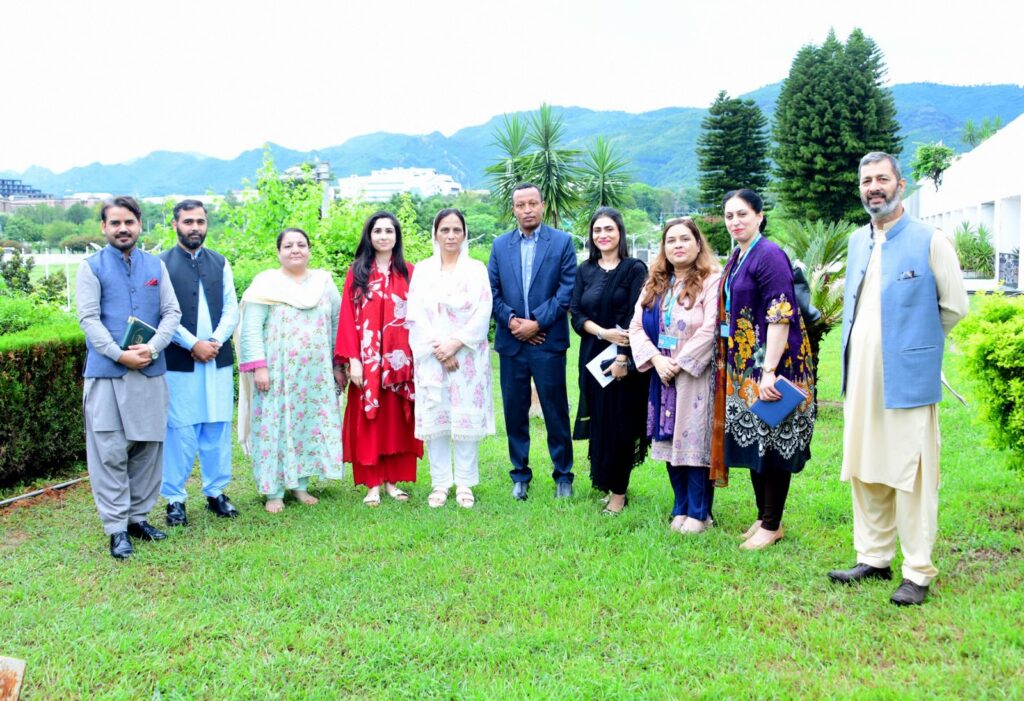
Islamabad : UNICEF delegation comprised of Mr. Anteneh Girma Minas (Chief Nutrition), Dr. Saba Shuja (ECD Manager) & Ms. Fahmida (Gender & development Specialist) met with Secretary of the Women Parliamentary Caucus to deliberate on th e malnutrition situation of children and women of Pakistan.Malnutrition is the barriers in equity to the holistic development of all Pakistani children. Currently country is facing triple burden of malnutrition. 12 million children under five years of age are stunted, while 17.7 per cent (5million) suffer from wasting, while half of our young girls are anemic. The malnutrition epidemic is a vicious cycle and intergenerational and we need to break this cycle.There are some legislations and policies that can enhance the enabling environment for mothers and children feeding and care practices e.g. enactment of Breast Milk Substitute (BMS) Code/Legislation to protect the breastfeeding (first nutritious food for new born) and Family Friendly Policies (FFP) to provide enabling environment for mothers to feed and take care for their children while at work ( formal or non-formal). Implementation of such policies are equally important for women health (physical & mental Health).Therefore, UNICEF called for the nationwide adoption of the Islamabad Capital Territory Protection of Breastfeeding and Child Nutrition Bill, 2023 and urging both public and private sectors to prioritize four key actions: paid parental leave, breastfeeding breaks at work, affordable quality childcare, and child grants under Family Friendly Policies. UNICEF stressed the need to speed up legislation and monitoring of the laws related to breastmilk substitute across all levels and increase investment in breastfeeding support through dedicated annual budgets. These steps are crucial to creating workplaces that help parents give their children the best start in life.During the meeting with the Secretary of the Women Parliamentary Caucus, the discussion centered on addressing the gender barriers related to the accessibility, availability, and affordability of a nutritious diet for women and adolescent girls in Pakistan. It was emphasized that the Government of Pakistan must elevate the issue of adolescent girls’ and women’s nutrition on both the political and development agenda. The Women Parliamentary Caucus has a pivotal role in driving Nutrition agenda forward by advocating for gender-responsive maternal and adolescent nutrition policies and addressing the triple burden of malnutrition through effective laws and policies. The importance of not losing sight of the critical link between a child’s nutritional status and that of the mother was underscored, as the health of one directly impacts the other. The time to act is now, as well-nourished girls are more likely to excel in school, and well-nourished women are positioned to earn higher incomes, thereby gaining greater control over decisions that influence their own nutrition and that of their children.